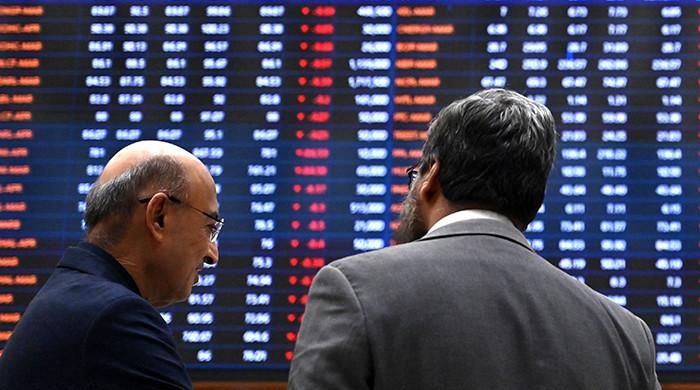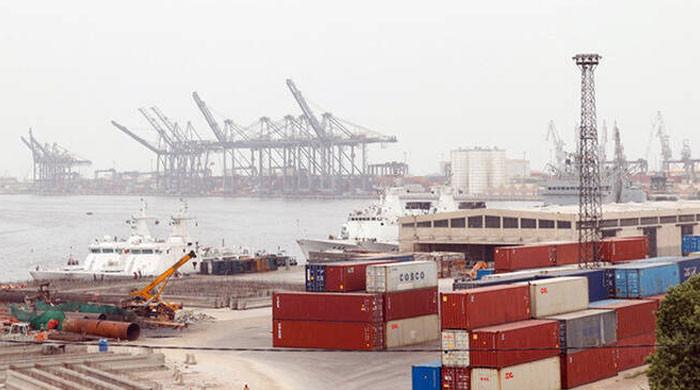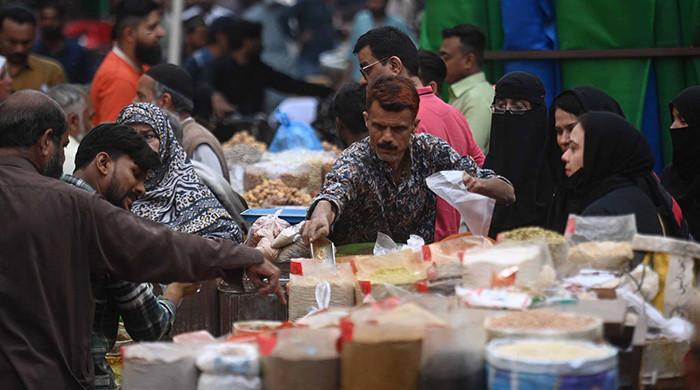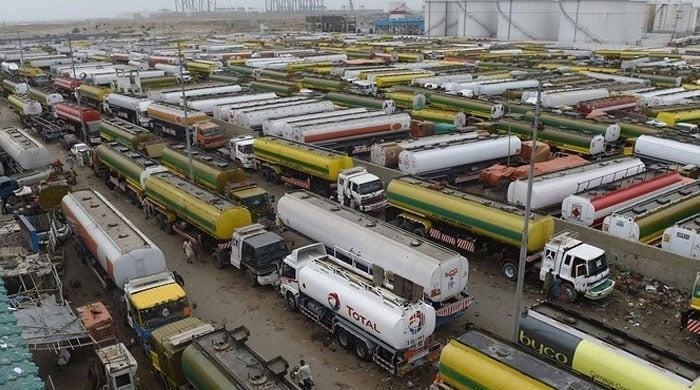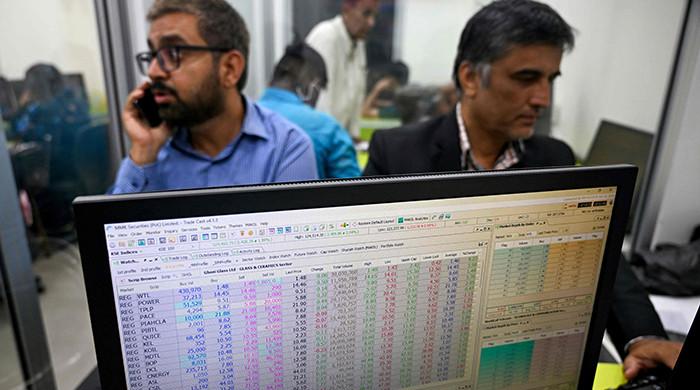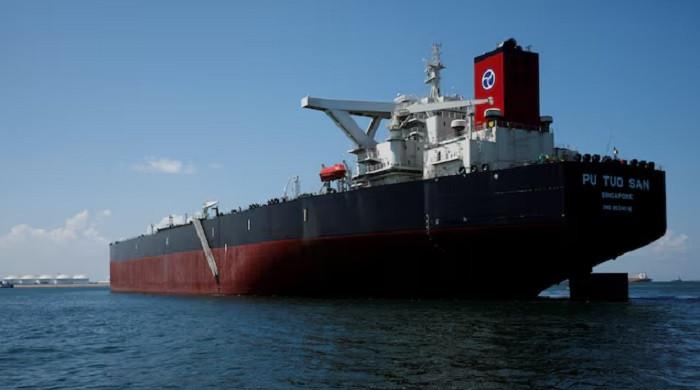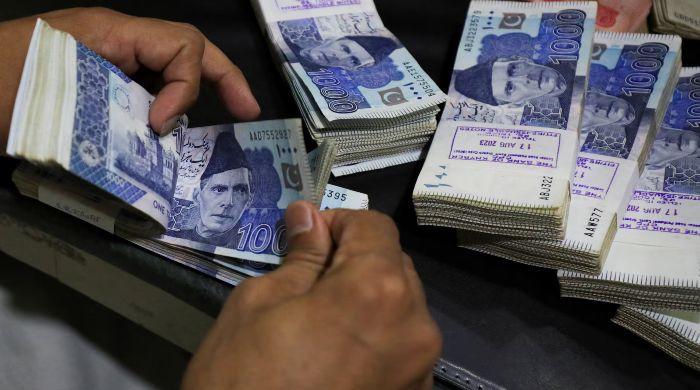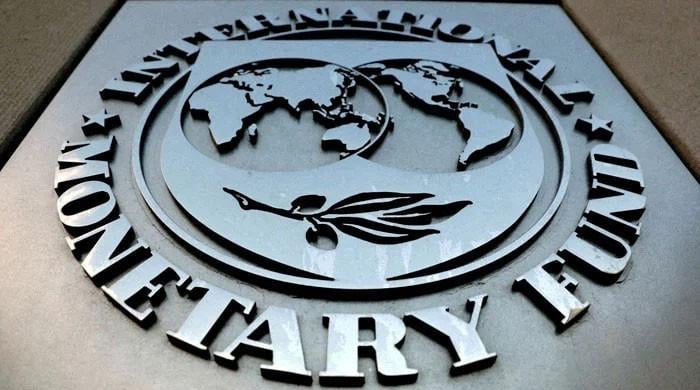National Assembly unanimously approves much-needed mini-budget
Finance Minister Ishaq Dar says mini-budget tweaked with few amendments
February 20, 2023
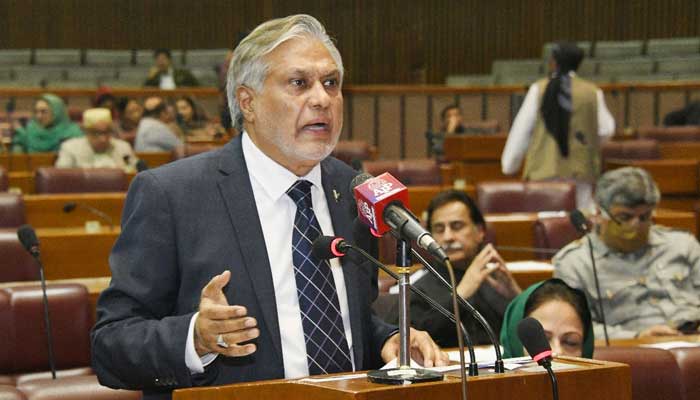
- "PM will also unveil austerity measures," Dar tells parliament.
- Says govt held talks with IMF convincing it to agree on Rs170bn taxes.
- Finance czar also tells NA "we'll have to take difficult decisions".
The National Assembly Monday unanimously approved the government’s much-needed Finance (Supplementary) Bill 2023 or ‘mini-budget’ — a move mandatory for seeking $1.1 billion tranche of the International Monetary Fund (IMF) loan.
The mini-budget’s approval comes as the government continues its talks with the IMF, the international lender, while adhering to its conditions to help cushion Pakistan's dwindling economy.
The bill increases sales tax from 17 to 25 percent on imports ranging from cars and household appliances to chocolates and cosmetics. A general sales tax was raised from 17% to 18%.
People will also have to pay more for business-class air travel, wedding halls, mobile phones, and sunglasses.
"The prime minister will also unveil (further) austerity measures in the next few days," Finance Minister Ishaq Dar told the lower house of parliament as the bill was passed, adding "we will have to take difficult decisions".
He also added that a few amendments have been made to the bill and assured the members that the coalition government will meet its annual tax target for the FBR.
Excise duty on business class ticket fares for those flying to South America has been fixed at Rs250,000, while duty on business and first class fares for those travelling to Africa and Middle East has been fixed at Rs75,000, Dar said.
The senator stated that the excise duty on tickets to European countries is fixed at Rs150,000, while those travelling to Australia, New Zealand and countries in the Asia Pacific on business and first class flights will pay Rs150,000.
The minister accepted that the people are reeling with sky-high inflation, but also questioned whether the increase was the result of the decisions taken in the last four months — the time since he’s taken over the reins of Pakistan’s economy.
The senator blamed the previous Pakistan Tehreek-e-Insaf-led administration for ruining the country’s economic state highlighting the way it backtracked from the IMF agreement. “The previous government violated the economic discipline.”
Dar stated that the government is taking all possible steps to ensure economic stability. “We held negotiations with the IMF for 10 days and convinced them to agree on taxes worth Rs170 billion,” he added.
Before the mini-budget’s approval, Dar — while speaking on the floor of the National Assembly — said the government appreciated recommendations by lawmakers for the bill and thanked the house for participating in debate regarding the bill. He also said the government considered recommendations shared by the parliamentarians.
The finance czar further added the government introduced the mini-budget following the IMF’s conditions. “We also don’t like imposing taxes. We tried keeping a minimum rate of additional taxes.”
Earlier today, State Minister for Finance Aisha Ghaus Pasha said the Finance (Supplementary) Bill 2023 was likely to be approved today by the NA.
The minister added that the government decided to get the mini-budget approved by the lower house today. It should be noted that it was already approved in the Senate by a thin margin.
“Virtual discussions with the International Monetary Fund (IMF) are ongoing and talks will also take place today,” the minister said while speaking to journalists in Islamabad.
Pasha hoped for a staff-level agreement to materialise with the IMF soon. “Matters with the IMF are progressing in a positive direction. A further delay in the agreement is unlikely.”
Dar tabled the bill in the National Assembly and Senate on February 15 with budget proposals presented seeking to fulfil the prerequisites for unlocking the crucial $1.1 billion IMF loan tranche which will help cushion the country's dwindling economy.
A session of the lower house, to debate over the finance bill, was held on Friday (February 17); however, it was adjourned without voting after a brief debate on the budget proposals.
"The NA session has been adjourned to meet again on Monday, the 20th February 2023 at 5:00 pm," it was announced on the official Twitter handle of the lower house.
Dar, while speaking to reporters after the session, said that he expects the bill to be passed in both houses by Monday or Tuesday as Senate Chairman Sadiq Sanjrani has "given us till Friday".
Pakistan is in dire need of funds as it battles a wrenching economic crisis as the State Bank of Pakistan (SBP)-held foreign exchange reserves barely cover one month of imports.
Pakistan is desperate to unlock the next tranche of a $6.5 billion loan facility with the IMF but struggling to meet tough conditions set by the global financier.
The IMF is demanding that Pakistan boosts its pitifully low tax base, ends exemptions for the export sector, and raises artificially low energy prices that are meant to help poor families.
"Those who are making good money in public or private sectors need to contribute to the economy," IMF Managing Director Kristalina Georgieva told German state broadcaster Deutsche Welle at the weekend.
"It shouldn't be that the wealthy benefit from subsidies. It should be the poor who benefit from them."
Dar told parliament when tabling the bill this month that the luxury tax would generate an additional Rs170 billion ($650 million).
"These are the items which are widely used by the rich class," he said, adding it would "put minimum burden on the common man".
While an IMF cash injection will not be enough to rescue Pakistan on its own, it is necessary to boost confidence and open the doors for friendly nations such as Saudi Arabia, China and the United Arab Emirates to offer further loans.
— With additional input from AFP




